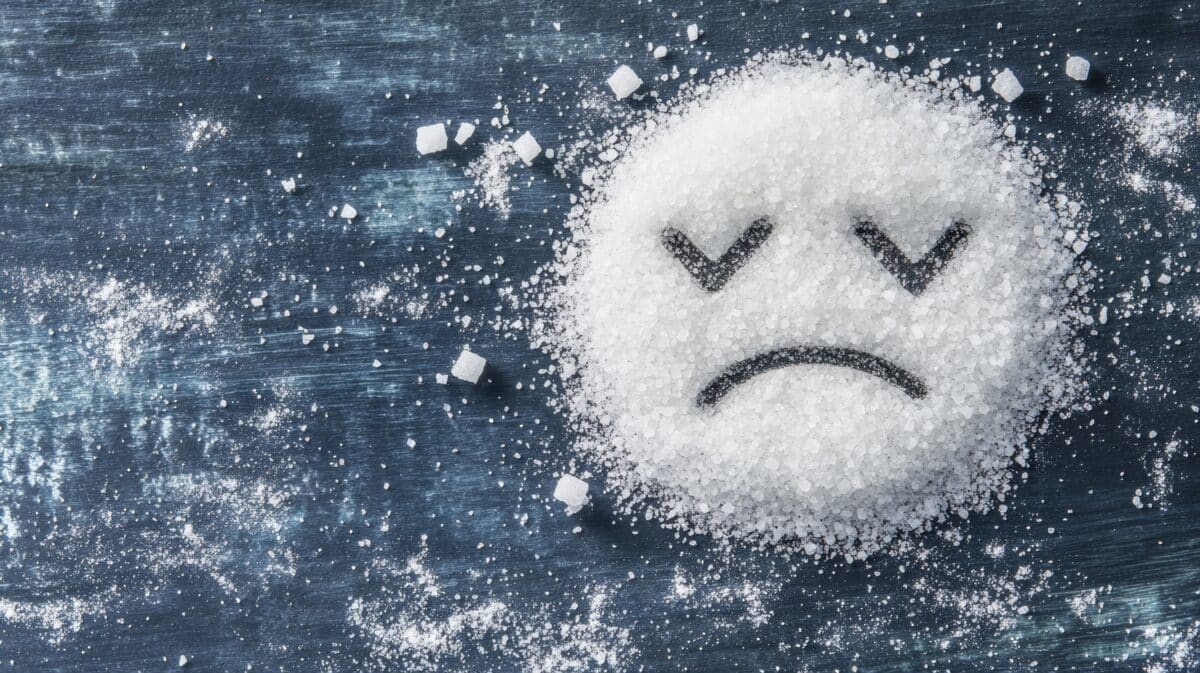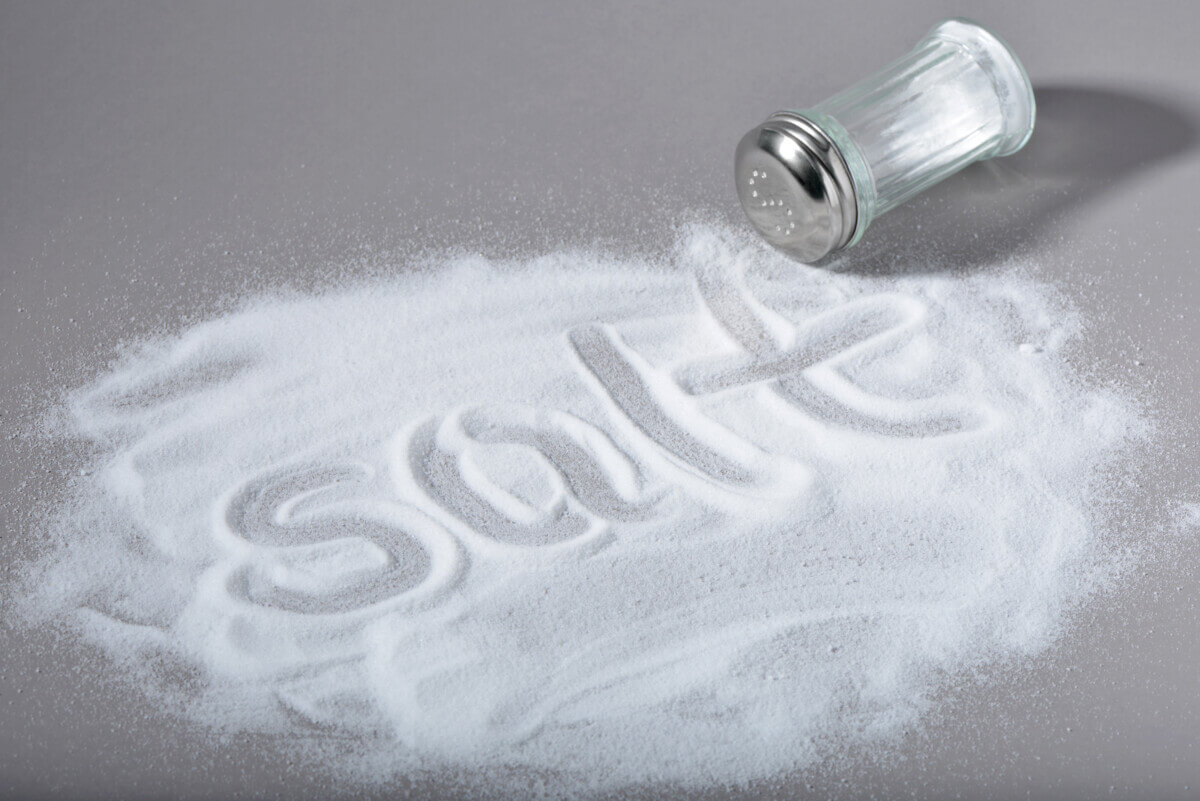
(© atipong - stock.adobe.com)
In a nutshell
- High-salt diets triggered depression-like behaviors in mice by activating specific immune cells that produce the inflammatory molecule IL-17A.
- When researchers removed these immune cells or used mice genetically unable to produce IL-17A, the depression-like behaviors didn’t occur despite high salt consumption.
- While promising, this mouse study used extremely high salt levels, and more research is needed before applying these findings to human depression treatment.
NANJING, China — Too much salt has long been blamed for heart problems, but new research suggests it might harm our minds too. Scientists from Nanjing Medical University have discovered a surprising connection between high-salt diets and depression-like behaviors in mice, potentially explaining why depression rates continue rising alongside our consumption of processed foods.
The research team found that excessive salt intake triggers specific immune responses in the brain that can lead to behaviors resembling depression. Their findings, published in The Journal of Immunology, offer a biological explanation for previously observed connections between processed food consumption and mood disorders.
Depression affects millions worldwide, with lifetime prevalence reaching 15-18% in many populations. Modern Western diets, especially fast food, contain dramatically more sodium than home-cooked meals—sometimes exceeding homemade options by 100-fold.
The Salt-Depression Connection
In the study, mice fed high-salt diets showed behaviors remarkably similar to those experiencing chronic stress. They explored less, displayed heightened anxiety, and spent more time motionless during tests measuring “behavioral despair”—patterns that parallel human depression symptoms.
The researchers investigated the biological mechanisms behind these behavioral changes. High-salt diets significantly increased production of Interleukin-17A (IL-17A), an immune signaling molecule, particularly in specialized immune cells called gamma delta T cells (γδT cells).
Previous research had linked elevated IL-17A to depression, but this study reveals a direct pathway from dietary salt to increased IL-17A production to depression-like symptoms.
To confirm this connection, the team tested mice genetically modified to lack the ability to produce IL-17A. These mice showed no signs of depression despite consuming high-salt diets. Even more convincingly, when researchers removed the specific immune cells that produce IL-17A, the animals no longer developed depression-like behaviors on high-salt diets.

What This Means for Humans
While conducted in mice, the research has compelling implications for human health. Population studies have already shown links between high-salt diets and increased depression rates. This study offers a potential explanation for those observations.
The average American diet contains about 3,400 mg of sodium daily—far exceeding the American Heart Association’s recommended maximum of 2,300 mg. Fast food meals often deliver an entire day’s worth of recommended sodium in a single sitting.
This isn’t the first research connecting diet and mental health. Mediterranean diets rich in fruits, vegetables, whole grains, olive oil, and lean proteins correlate with lower depression rates. Conversely, diets heavy in processed foods, sugars, and unhealthy fats tend to increase depression risk.
The distinctive aspect of this study is identifying a specific biological pathway connecting diet directly to depression-like behaviors. This precision opens doors to potential new treatment approaches targeting the immune system rather than just brain chemistry.
Simple Ways To Reduce Salt Intake
Current depression treatments typically focus on neurotransmitter imbalances using medications like SSRIs or on changing thought patterns through therapy. The discovery that dietary factors might contribute to depression through immune pathways represents an important shift in how we might approach mental health care.
Applying these findings doesn’t necessarily require waiting for new pharmaceutical treatments. Simple dietary changes are accessible to most people:
- Reducing processed food intake
- Eating more home-cooked meals
- Checking food labels for sodium content
- Using herbs and spices instead of salt for flavoring
Some health professionals already recommend the DASH diet (Dietary Approaches to Stop Hypertension) for patients with high blood pressure. This diet emphasizes fruits, vegetables, whole grains, lean proteins, and reduced sodium. This new research hints such approaches might benefit mental health too.
Beyond individual choices, these findings could influence public health policies around sodium reduction in processed foods. Some countries have already implemented such regulations: the United Kingdom’s salt reduction program has achieved a 15% decrease in average salt intake since implementation.
While more research is needed before definitive conclusions about salt reduction as a depression treatment in humans, this study adds to mounting evidence that what we eat affects both body and mind. For those struggling with depression, these findings don’t suggest dietary changes should replace established treatments like therapy and medication, but they highlight diet as an important complementary factor in mental health care.
Points Of Contention
Animal vs. Human Application
- This research was conducted entirely in mice, not humans
- Mouse depression models may not fully represent human depression’s complexity
- The behavioral tests measure approximations of depression symptoms
Extreme Salt Levels
- The study used extremely high salt concentrations (8% in food, 1% in water)
- This far exceeds even high-sodium human diets
- Unclear if more moderate salt increases would produce similar effects
Female-Only Subjects
- Only female mice were studied
- Sex differences in immune response and depression are well-documented
- Results might differ in male subjects
Correlation vs. Causation Questions
- The study shows a pathway but doesn’t prove this is the only mechanism
- Other factors beyond IL-17A may contribute to depression in high-salt scenarios
- The relationship may be more complex in humans with varied diets and lifestyles
Clinical Application Hurdles
- No evidence yet that reducing salt intake reverses depression symptoms
- No human clinical trials testing this specific mechanism
- Unknown if targeting this pathway would be effective in humans already experiencing depression
Paper Summary
Methodology
The study used female C57BL/6J mice aged 8-12 weeks, including normal mice and some genetically modified to lack RORγt (a protein necessary for IL-17A production). Researchers split the mice into groups receiving either normal diet (0.5% salt) or high-salt diet (8% salt in food plus 1% salt in drinking water) for 5-8 weeks. They also included a group subjected to chronic restraint stress (placed in a restrictive tube for 4 hours daily for 3 weeks) as a comparison model known to induce depression-like behavior. To assess depression-like behaviors, researchers employed four behavioral tests: the open field test (measuring exploration and anxiety), elevated plus-maze test (measuring anxiety), and tail suspension and forced swimming tests (both measuring “giving up” behaviors). They then examined tissues from blood, spleen, and brain using flow cytometry and microscopy to identify changes in immune cells and IL-17A production. In some experiments, they depleted specific immune cells (γδT cells) using antibodies to see if this would prevent depression-like behavior in mice eating high-salt diets.
Results
Mice on high-salt diets developed significant depression-like behaviors comparable to those seen in chronically stressed mice. They showed reduced exploration in open spaces, increased anxiety behaviors, and greater immobility (a sign of “giving up”) in behavioral tests. These changes happened without affecting blood pressure, body weight, or food intake, suggesting the effects weren’t due to physical health problems. High-salt diet increased IL-17A production in the spleen, blood, and brain. Further analysis showed γδT cells (specifically a subset called γδT17 cells) were the main source of this increased IL-17A. When genetically modified mice unable to produce IL-17A were fed high-salt diets, they didn’t develop depression-like behaviors. Similarly, depleting γδT cells in normal mice using antibodies protected them from developing depression-like behaviors despite consuming high-salt diets. These results strongly suggest high-salt diets trigger depression-like behaviors through IL-17A production by γδT cells.
Funding and Disclosures
This research received support from multiple grants from the National Natural Science Foundation of China (grants 82304264, 82372281, 82273755, and 82220194), the Natural Science Foundation of Jiangsu Province (grants BK20220194 and BK20221306), the Qing Lan Project of Jiangsu Province, and the Jiangsu Provincial Medical Key Discipline Cultivation Unit (JSDW202239). The authors declared no financial conflicts of interest related to the study. Animal experimentation followed regulations for laboratory animals at Nanjing Medical University, with approval from the Institutional Animal Care and Use Committee (permit number IACUC-2006004).
Publication Information
This research appeared in The Journal of Immunology in 2025, authored by Di Lu, Wenjie Chen, Wenhui Sun, Chuan Wei, and several other researchers from Nanjing Medical University and affiliated institutions in China. The study, “High-salt diet drives depression-like behavior in mice by inducing IL-17A production,” was received July 26, 2024, and accepted January 13, 2025. The paper is available online through Oxford University Press on behalf of The American Association of Immunologists.








Your body needs salt. In fact, if your body doesn’t get enough of it that can cause its own set of problems. This study falls short in so many ways.
FDA to mandate No Salt potato chips
Drink more water. People (with less than a 5% exception) process excess salt quite easily with no harm.
Anything to ignore and deny the massive wealth inequality and oppression from the elite classes towards the masses. They’ve managed to strangle every bit of enjoyment out of life, and they still take more while mocking us all.
Oh look dad! time for another hit piece of salt. Where’s the hit pieces on food dyes?